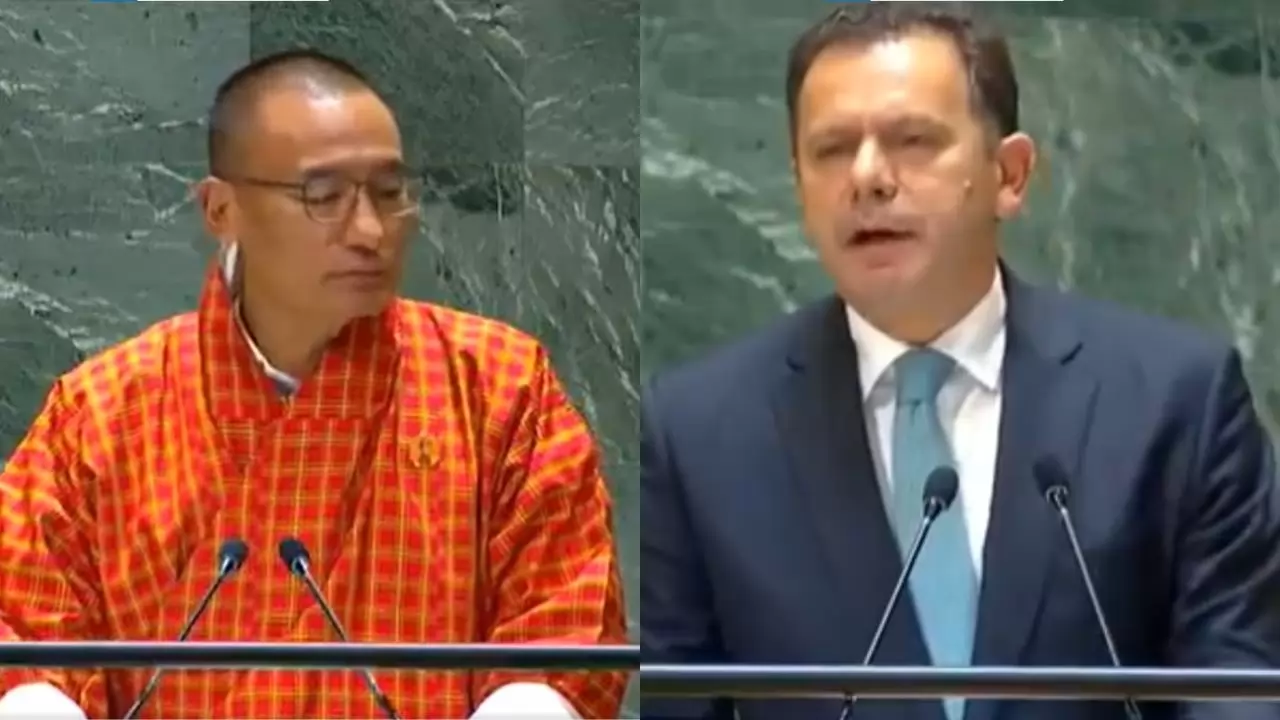
Bhutan PM Tshering Tobgay and Portugal PM Luís Montenegro. (X/sidhant)
India's UNSC bid: India’s quest for permanent membership in the United Nations Security Council (UNSC) has received a big boost following endorsements from Bhutan and Portugal during the recent UN General Assembly session. This support comes hot on the heels of backing from the United States, France, and Britain, who also championed India's candidacy for a seat on the powerful council.
The UNSC is comprised of five permanent members: the United States, the United Kingdom, China, France, and Russia, each wielding veto power over any resolutions or decisions. Over the years, India has consistently advocated for its inclusion as a permanent member of this influential body. However, China's persistent obstruction has posed a considerable challenge to India's efforts.
During the assembly, Bhutan's Prime Minister Tshering Tobgay emphasized the urgent need for comprehensive reform within the UNSC, labeling it a "relic of the past." He argued that India, due to its remarkable economic growth and leadership role in the Global South, is deserving of a permanent seat at the table. The term "Global South" refers to countries that face significant economic challenges and higher levels of poverty and hunger compared to their Northern Hemisphere counterparts.
Tobgay expressed his appreciation for India's support and friendship as Bhutan strives to graduate from the Least Developed Countries (LDC) category. "The United Nations must evolve to meet the realities of today's world. The Security Council, as it stands, is a relic of the past. We need a council that reflects the current geopolitical, economic landscape, and social realities," Tobgay asserted.
Portuguese Prime Minister Luís Montenegro also voiced his support for India's UNSC bid, stressing that the council's current composition is outdated. He stated, "We uphold a reform process for the UN Security Council that will make it more representative, agile, and functional. Its composition is out of date, and the absence of some regions hinders its functioning." Montenegro underscored the necessity of expanding representation in the UNSC, advocating for countries like Brazil and India to secure permanent membership.
Furthermore, he pointed out the need to reassess the use of veto power, arguing that it should not be disproportionately exercised by nations embroiled in conflicts. Montenegro's remarks resonate with the broader call for a more equitable and effective United Nations, ensuring that all regions are adequately represented.





Copyright © 2026 Top Indian News
